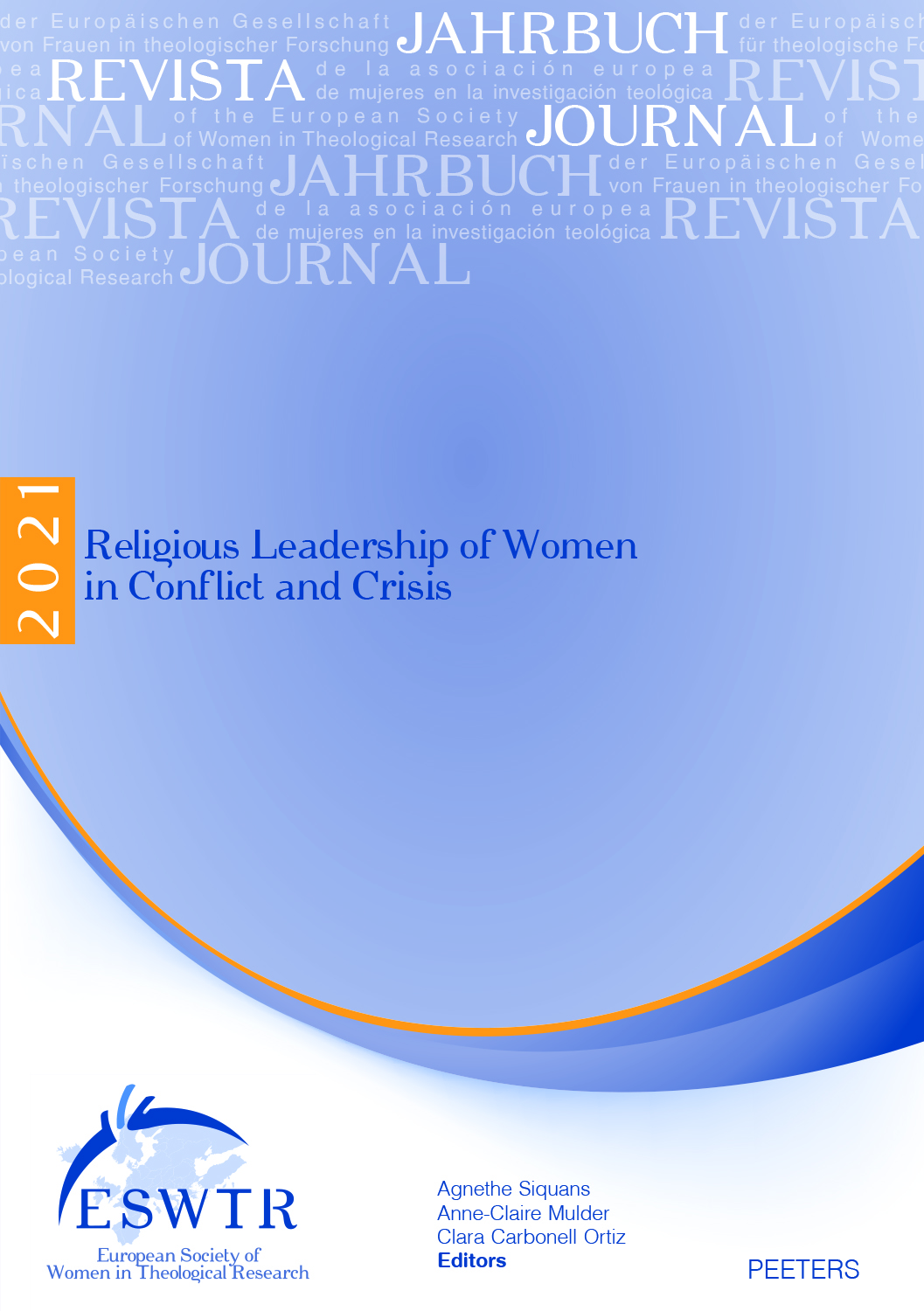 previous article in this issue previous article in this issue | next article in this issue  |

Preview first page |
Document Details : Title: Grundgedanken einer Theologie des Blühens Author(s): STRACK, Hanna Journal: Journal of the European Society of Women in Theological Research Volume: 18 Date: 2010 Pages: 217-228 DOI: 10.2143/ESWTR.18.0.2056282 Abstract : Changing one’s perspective from mortality to natality (Hannah Arendt) requires theological consequences. It must be a theology which relates the dynamic development of the human being, which starts pre-natally, to God. 'Human flourishing' in Anglo-American parlance describes a state of well-being, eudaimonia, understood here as the processes of the development of existence with the changes leading to fullness of life. This suggestion was made by Grace M. Jantzen in her book Becoming Divine: Towards a Feminist Philosophy of Religion. Various passages of the bible reveal that there is a broad basis for this. God can be described as the driving force of unfolding in the life of the human being from conception to death. Viriditas in Hildegard von Bingen’s terms, the cross as the tree of life, etc. convey a theology of flourishing which is reflected in many women’s liturgies. Global responsibility for ecological conditions and for 'flourishing life' (Mary Grey) is shared by many religions (shalom). Praising God means enabling all of creation to flourish (Sally McFague). El cambio de perspectiva de mortalidad a natalidad (Hannah Arendt) implica consecuencias teológicas. Tiene que ser una teología que relacione la evolución dinámica del ser humano, empezando ya antes del nacimiento, con Dios. 'Human Flourishing' (eudemonismo) es en el discurso angloamericano el estado de plenitud, eudaimonia, y se refiere a los procesos de ir desarrollando la existencia, los procesos de cambio hasta llegar a la plenitud de la vida. Esta sugerencia proviene de Becoming Divine: Towards a Feminist Philosophy of Religion de Grace M. Jantzen. Hay varias partes de la Biblia que demuestran que ello tiene buen fundamento. Podemos describir a Dios como la fuerza que mueve al hombre a desarrollarse, desde la concepción hasta la muerte. La viriditas de Hildegarda de Bingen, la cruz como árbol de la vida, entre otras, contienen una teología del florecer que se encuentra mucho en la liturgia femenina. La responsabilidad global por lo ecológico y por la 'vida floreciente' (Mary Grey) incluye muchas religiones (shalom). Alabar a Dios significa contribuir a que todas las criaturas florezcan (Sally McFague). |
 |


